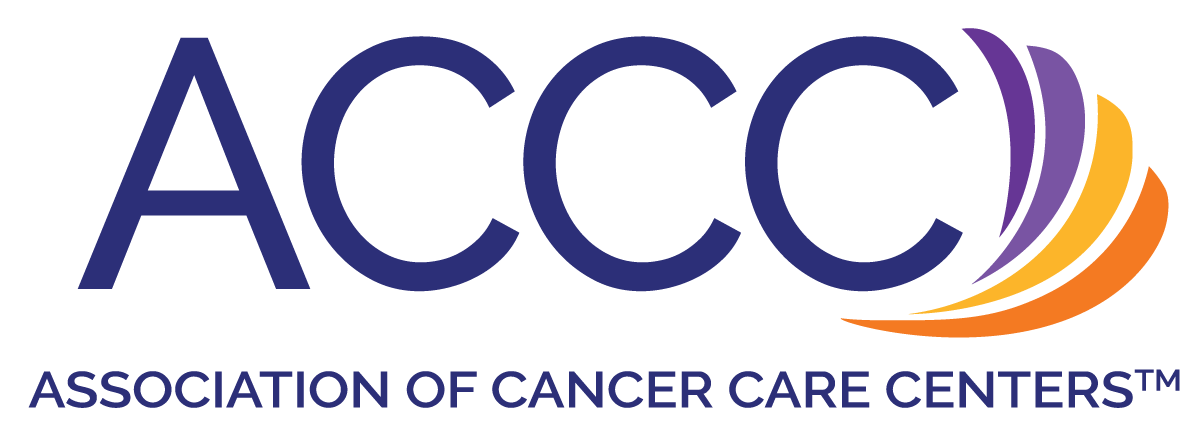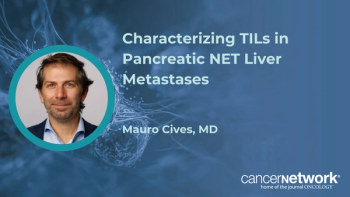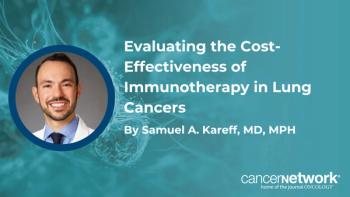
Trends in Oncology from ACCC Annual Report Reveal ‘Silver Lining’ of the Pandemic

The 2020 Trending Now in Cancer report highlighted a shift in oncology care resulting from the COVID-19 pandemic.
Results from the Association of Community Cancer Centers’ (ACCC) annual report, Trending Now in Cancer Care 2020, reveal the extent of the COVID-19 pandemic on cancer care and oncology professionals.
Straying from the organization’s typical structure of conducting surveys for the report, the team at ACCC conducted focus groups in 2020 to better understand the experiences of health care providers. This decision was made due to the high demands on multidisciplinary care providers over the previous year. Topics discussed included staffing and operational integrity, service line delivery and revenue optimization, telehealth and supportive technology, clinical research, and health equity.
“This report is critically important and unlike any other, in that we are able to identify the impact of the pandemic on cancer programs and their staff, and tailor our resources to incorporate the lessons learned over the past year,” Krista Nelson, MSW, LCSW, OSW-C, FAOSW, who is ACCC President and Program Manager of Quality and Research, Cancer Support Services & Compassion for the Providence Cancer Institute in Portland, Oregon, said in a press release. “Feedback from members reaffirmed ACCC’s commitment to focus on education and resources to promote equity, diversity, and inclusion within oncology, and build a culture of resilience for cancer care staff.”
As expected, findings of the survey showed that COVID-19 weighed heavily on providers in the oncology space. Factors contributing to the added stress ranged widely and included financial hardships from layoffs, exhaustion from burnout, and the emotional toll of social distancing measures. Managers and leaders reported that the added burden of caring for the needs of their staff was a “full-time occupation”.
In line with available research indicating that the pandemic led to a drop in cancer screenings, the focus groups confirmed that their experiences matched the findings of investigators. Adding to that, many reported that necessary screening measures have not resumed to pre-pandemic levels. As such, participants surmised that more advanced cancers at diagnosis are likely to be recorded in 2021 and beyond.
Reduced or suspended services and the overall reduction in patient volume adversely impacted revenue to the health care system. However, since oncologic services such as chemotherapy infusions and radiation treatments remained steady during the early months of the pandemic, cancer programs served to financially “shore up” the health care institutions whose other service lines diminished care.
A more robust telehealth structure emerged as a welcomed side effect of the pandemic, accounting for between 40% to 50% of patient volume in 2020. However, greater reliance on these methods of communication has created a “digital divide” where certain patients, especially those in rural areas where cell phone service and connectivity are lacking, do not have equal access.
Exacerbated by the presence of the virus, health disparities in general and those specific to oncology came to the forefront. Socioeconomic, racial and ethnic, age, gender and geographic divides are served to aggravate health outcomes, which in turn motivated cancer programs across the country to act. New efforts like extending office hours, assisting patients with transportation, and partnering with community organizations were implemented to assist those who had difficulty accessing needed care. In addition, ACCC reported that added flexibilities in clinical research have the potential to positively impact the conduct of clinical trials in the long term, which may result in untold benefits to providers and their patients.
Ultimately, the findings revealed “silver linings” to come from the disruptions of the pandemic, with focus group participants reporting “how their cancer programs and practices developed new operational approaches and workflows to minimize disruptions to staff and patients and ensure continuity of care.”
References
1. Trending now in cancer care. Association of Community Cancer Centers. May 2020. Accessed May 26, 2021. https://bit.ly/3hSG2XF
2. Association of Community Cancer Centers Releases Report: Trending Now in Cancer Care 2020. News release. Association of Community Cancer Centers. May 24, 2021. Accessed May 26, 2021. https://bit.ly/3hUpuyh
Newsletter
Stay up to date on recent advances in the multidisciplinary approach to cancer.












































